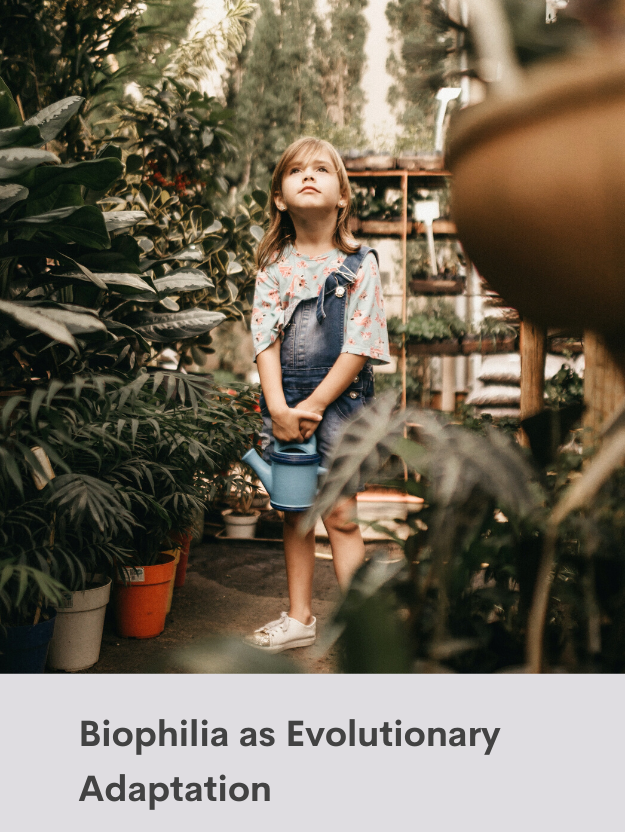Biophilia as Evolutionary Adaptation: An Onto- and Phylogenetic Framework or Biophilic Design

Biophilia is a human personality trait described initially by Erich Fromm and later by E.O. Wilson, both of whom agree that biophilia has a biological basis and that it is fundamental to develop harmonious relationships between humans and the biosphere. This review aims at establishing a definition of biophilia as an evolutionary process. To this end, the most significant studies of evolutionary psychology were considered, to outline the fundamental characteristics of a hypothetical biophilic temperament/personality and to reconstruct a plausible history of biophilia as an evolutionary process. This process considers different typologies of Nature (wilderness, rural, and urban) and human cultures (Paleolithic, Neolithic, and Burg) and leads us to consider environmental preference and psycho-physiological recovery in relation to the threshold of time spent in contact with Nature. Unfortunately, modern people, especially children, lack direct and frequent contact with Nature and this can have negative consequences on their physical and mental health. Biophilic design, considering the evolutionary roots of this architectural approach, is an effective way of planning/designing interior and urban environments to stimulate the innate biophilia of the individual.
